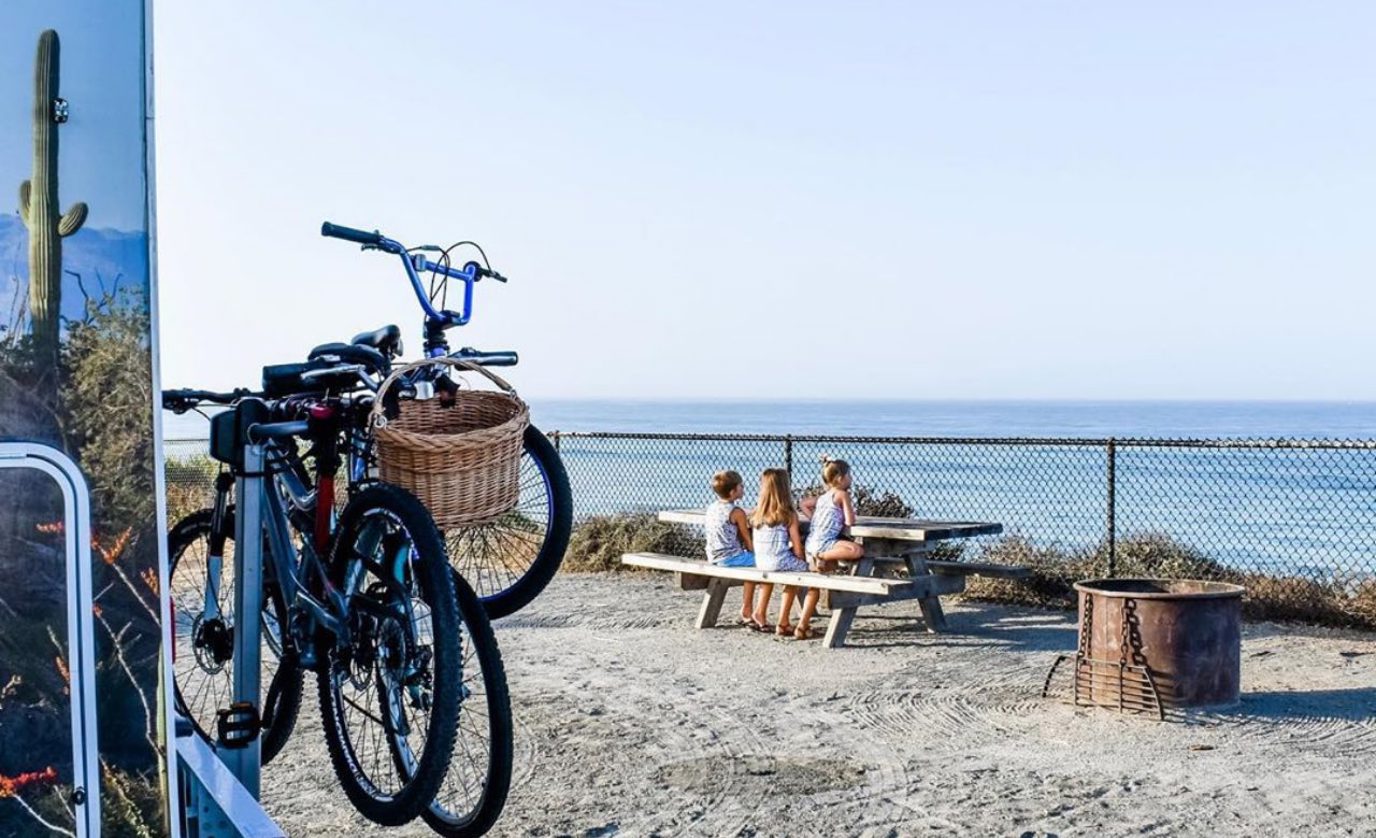
RV Parking Regulations To Know Before Hitting The Road
SharePhoto Credit: Instagram User @flyingwithfour
When you’re not rolling towards your next fun-filled excursion, it’s time to park the RV. Getting familiar with general RV parking regulations is a smart move. Buckle up and adjust those mirrors! We’re taking a look at RV parking laws. The road ahead includes answers to:
-
Where is it legal to park my RV?
-
What are the rules for parking an RV on a residential street?
-
What are the recreational vehicle parking restrictions?
For all things RV parking, read on!
Parking an RV on a Residential Street
One of the most common RV parking questions is, “Can you park an RV on the street?” The answer depends on your location. Depending on where you live, RV parking regulations will likely fall into one of the categories below.
-
RV parking on the street is not allowed.
In many cities, RV parking laws prohibit the overnight parking of recreational vehicles on residential streets. The good news is that many areas that enforce a no-street parking law allow you to park the RV on your property.
For instance, the RV parking regulations in Billings, Montana, allow “open storage and off-street parking of licensed and operable recreational vehicles.” Billings and other cities across the US allow you to park your RV in your driveway, side yard or backyard. However, the RV must not obstruct the sidewalk or encroach on the property of neighbors.
Consult the Department of Transportation parking guidelines in your city to learn about where it’s legal to park an RV in your neighborhood.
-
RV parking on the street is allowed with a permit.
In some cities, parking an RV on a residential street is allowed. However, the owner of the vehicle must obtain an RV parking permit before they are legally permitted to park on the street.
Depending on location, RV parking permits vary in cost. Additionally, many of these permits outline a specific timeframe that the RV is allowed to remain.
For example, The City of San Diego offers a temporary parking permit for RVs. The permit costs $1.00 per day, and there is a maximum of 72 permits per year that a household can purchase. Other cities, such as Gardena, California, offer long-term parking permits for RV street parking.
The fact is, RV parking laws vary by state, city and even neighborhood. The regulations put forth by the homeowners’ association in your area may differ from local ordinances. Be sure to check out the laws in your area and in locations that you plan to visit.
Parking an RV at a Rest Area
If you’re on a road trip, you might be tempted to park your RV overnight at a rest area. Before you do, let’s take a look at RV parking regulations in rest areas.
When it comes to parking at rest stops, not all states have specific regulations regarding overnight parking for RVs. Because a primary goal of rest areas is to encourage safe and alert driving, many states have lenient policies for overnight RV parking. You can see the range of RV parking regulations in rest areas by examining laws in a handful of states:
Colorado: There is no overnight parking or camping allowed in Colorado's rest areas.
Minnesota: All other motorists are permitted to stop at rest areas for up to four hours, where posted.
Utah: All rest areas are posted for no overnight camping. However, extended stays are permitted and are monitored by the on-site staff and the Highway Patrol.
Nebraska: Overnight camping or parking is prohibited. The maximum length of stay permitted is 10 hours.
Texas: A person commits an offense if the person remains at a rest area for longer than 24 hours or erects a tent, shelter, booth, or structure at the rest area.
While laws about rest stops vary from state to state, it’s a well-established rule that camping at rest stops is prohibited. This means that you should not pull out chairs, extend your sides or do anything else that signals you’re camping, rather than simply parking in the area.
Places that Offer RV Parking
Casinos offer more than glimmering slot machines. For RV drivers, a casino may offer a place to park for the night. When you arrive at a casino, head to the front desk to inquire about overnight RV parking. Some casinos charge a small fee for parking, but many offer the spot at no cost. Either way, make sure to abide by the casino rules and check in so that you can be sure your presence is allowed.
Another option for free overnight RV parking is a private home. If you have friends in the area, consider asking to park your RV in the driveway. Some cities and HOAs require guest RV permits if you stay for more than a certain number of days. For example, Pinal County, Arizona, allows RV guests for up to 15 days before requiring a permit.
For more long-term RV parking options, KOA parks and other campgrounds offer sites. Browse our campground finder to learn more about parking options for your RV.
Find Answers to Your RV Questions at Cruise America
At Cruise America, adventure is always around the corner. Our selection of decked out RV rentals are easy to maneuver so you can park with ease. We welcome you to join our community of nature-loving, trail-blazing, all-around amazing RV lovers. Visit our RVing 101 resource for more information on renting, buying and camping in an RV.





